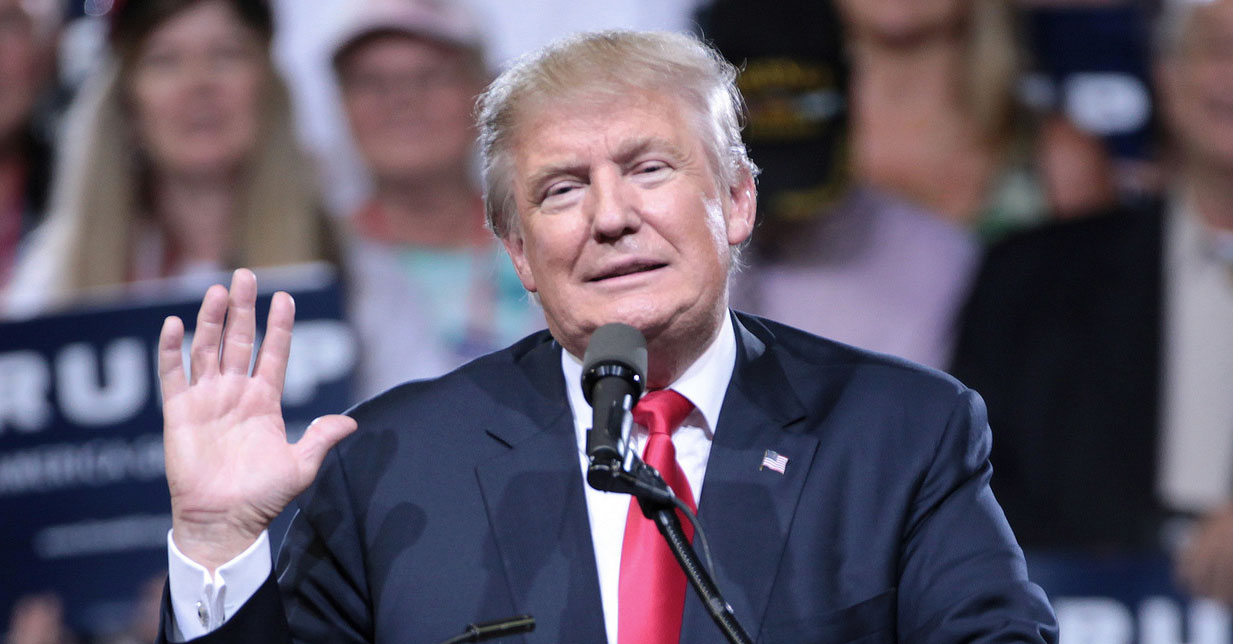
The Wall Street Journal’s top financial columnist praised President Donald Trump for issuing executive orders aimed to scale back consumer protections in the financial industry because the rollbacks would boost profits for big banks, ignoring the reality that the rules were put in place to protect the public, not the banking industry.
The Journal’s chief economics commentator, Greg Ip, hailed recent actions by Trump to curb government oversight of big banks in a February 8 column, claiming this would provide “regulatory relief” by addressing “a serious flaw” in banking regulations that focused merely on “financial stability and consumer protection” and “largely ignored the [regulatory] costs.” Ip noted that consumer advocate Sen. Elizabeth Warren (D-MA) and European Central Bank president Mario Draghi took issue with letting banks have more leeway, but he dismissed their concerns, stating, “The worriers should relax.” From The Wall Street Journal:
The worriers should relax. In the 10 years since the financial crisis began, the regulatory pendulum has moved relentlessly in the direction of tougher restrictions on finance. Mr. Trump’s order reverses the direction of the pendulum but there is little sign his administration wants it back to where it was in 2007.
His order does, however, address a serious flaw in the post-crisis regulatory crackdown: In pursuit of financial stability and consumer protection, it largely ignored the costs of forgone lending, economic growth and consumer choice. Mr. Trump has signaled those costs must now be taken into account. He has asked his Treasury Secretary (now awaiting confirmation) to report back in 120 days on how well current regulations promote growth, efficiency and competitiveness. Over time, that could generate a better balanced supply of credit to a wider range of companies and households without making the financial system much riskier.
Ip continued that the consumer protections built into the Dodd-Frank Act, the CARD Act, and the Department of Labor’s fiduciary rule, which requires financial advisers to work in their clients’ best interests, “have carved into banks’ profitability” since their pre-recession peak. Ip concluded that the rules enacted after the 2008 financial crisis do little to prevent another financial crisis, except for rules that increased the amount of hard money a bank must hold in reserve relative to its debt risks. But Ip claimed the Trump administration “doesn’t appear to plan on rolling [capital requirements] back much.”
The executive orders that Ip praised directed departments to account for the regulatory costs of consumer protections when deciding which rules to roll back, which the Journal’s own reporting has concluded could create a $100 billion windfall for investors by loosening capital requirements at banks. These capital requirements are the same ones that Ip argued stand “the best chance of preventing another financial crisis.”
Ip argued that “a serious flaw” in the current slate of consumer protections is that they focus on protecting consumers and “in theory” could “reduce growth,” but in reality the three biggest banks reported strong fourth quarter earnings last year and CNBC reported that banks enjoyed record profits in the second quarter of 2016. These reports coincide with a February 2016 report from the Government Accountability Office (GAO), which found that the regulatory structure created after Dodd-Frank “has contributed to the overall growth and stability in the U.S. economy.”
Ip’s emphasis on bank profits fails to recognize that Dodd-Frank, the CARD Act, and the fiduciary rule are designed to minimize exploitation, not maximize profit. Dodd-Frank was enacted to protect the economy by empowering the Federal Reserve System with broader banking oversight and created new protections for consumers through the Consumer Financial Protection Bureau (CFPB). The CARD Act created even more protections for consumers, including limiting interest rate hikes on credit cards. The fiduciary rule ensures consumers receive financial advice catered to their best interests rather than their adviser’s bottom line, something that Ross Eisenbrey of the Economic Policy Institute (EPI) characterized as a“no-brainer” given that the investment advice industry “makes billions of dollars from conflicted advice.”
If Ip really wants the Trump administration to focus on increasing bank profits, heaping praise on executive orders that will weaken the economy and undermine an already profitable financial industry is a bizarre place to start. Jeff Spross of The Week put it bluntly in a February 6 column blasting Trump’s regulatory rollback: “Who on Earth would view deregulating the financial industry as a good idea?” Writing for The Guardian, Nils Pratley didn’t mince words either, characterizing the concept that banks are over-regulated as a “half-baked idea” and “nonsense” while adding that there is little evidence of consumer protections standing in the way of the industry’s growth.
Ip’s decision to defend Trump’s attempts to deregulate the financial sector may lend credence to reports that the Journal is intentionally taking a softer tone with the president and pressuring reporters “to reflect pro-Trump viewpoints” in articles. The Journal’s behavior is not surprising, as its right-wing editorial board has led a years-long campaign against consumer protections.